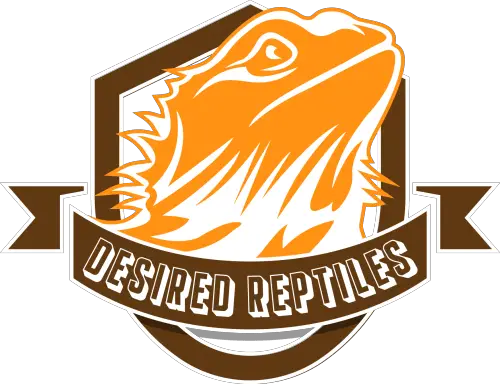Is your bearded dragon’s heat lamp malfunctioning, broken, or yet to arrive? Understandably, this can have you panicking wondering whether your pet is endangered. Beardies need heat for several crucial reasons; in fact, their lives depend on an adequate and consistent supply. But how long can your pet live without it?
Bearded dragons can survive a week without heat, though this can vary based on factors like age and health. The heat lamp is essential for supplying heat and UV light, which is necessary for various bodily functions. Without these provisions, your bearded dragon cannot survive.
In this article, we’ll discuss how long bearded dragons can live without heat, and how to manage the situation effectively. Let’s go!

Why Do Bearded Dragons Need Heat?
Bearded dragons, despite being cold-blooded, need heat daily to stay alive. Here are the reasons why:
To Metabolize Food
Bearded dragons require heat to activate the enzymes necessary for metabolism and digestion, which enables proper nutrient absorption. Without sufficient heat, they can’t digest consumed food, leading to impaction and malnutrition. If prolonged, your pet can sadly lose its life.
To Regulate Body Temperature
As beardies are ectothermic, they rely on external heat sources to raise their body temperature for normal bodily functions. While wild bearded dragons depend on sunlight, captive beardies require a durable heat lamp. If placed accurately in the enclosure, your pet will develop its unique basking routine. For instance, my bearded dragon precisely enjoys basking at 11 am and 3 pm. For my pet, breaking this routine signifies a problem.
To Stay Active
One of the indicators of brumation–a season similar to hibernation–is heat reduction due to environmental or climate change. As your bearded dragon relies on heat to stay active, inadequate warmth can lead to torpor and unnecessary brumation. Bearded dragons usually enter brumation to preserve resources during scarcity; it’s a survival mechanism to help them live through hardship. Hence, entering brumation due to a failing or absent heat supply becomes unwarranted.
To Boost Immunity
Your bearded dragon relies on heat to conserve a suitable temperature which protects its body from diseases. If its temperature is too low, its immune system may decline, exposing it to various infections.
An example of such an illness is pneumonia, which occurs when bacteria multiply in the respiratory tract and lungs. This causes inflammation and fluid buildup, leading to further complications and potentially resulting in death.
What Happens When Your Bearded Dragon’s Heat Source Is Cut Off?
Following insufficient heat supply, your bearded dragon’s metabolism drastically declines, almost coming to a halt suppressing its appetite and slowing down digestion. During this time, the unfortunate bearded dragon can become lethargic and may begin brumating to preserve its life.
However, entering brumation requires days or even weeks of preparation. Blindsiding your bearded dragon with an abrupt lack of heat can cause stress and other complications in its sudden state of dormancy such as acute indigestion and visceral bacterial infections.
Without brumation, your bearded dragon is likely to die within two weeks without heat. Hatchlings and elderly bearded dragons are particularly vulnerable and may succumb faster than healthy adult beardies.
How to Cope Without A Heat Lamp
If the heating lamp is temporarily unavailable, take your pet under the sun to bask for 30 minutes to an hour. However, this only works if you experience warm seasons. Do not take your beardie out in the cold, especially when it’s snowing.
If you live in cold areas where maintaining heat might be difficult, get a ceramic heat emitter (view on Amazon) to raise the temperature inside your pet’s tank. Alternatively, placing rocks in the enclosure can help retain warmth during the day to release at night. However, larger tanks may require a ceramic lamp as heat-retaining rocks might not suffice.
Is Your Bearded Dragon Cold? How to Tell
The optimal body temperature for a bearded dragon is 97°F (31.6⁰C). Using a laser thermometer, you can accurately read your pet’s temperature. If their temperature falls below 97⁰F, it indicates that your beardie is too cold, which may be accompanied by the following signs:
Lethargy
Lethargy is a common indicator of several health problems in bearded dragons, but it’s also a sign that your pet is too cold. Beardies get some of their energy from heat, and without it, their activity levels drop leading to lethargy.
Lack of Appetite
Without heat, your bearded dragon will attempt to slow down its metabolism to reduce the risks of indigestion which often results in a lack of appetite. If you notice your pet eating significantly less, it might be due to insufficient heat.
Evasiveness
Bearded dragons experiencing a drop in temperature may hide more to conserve their body heat or seek out safe spots for brumation. If you find your dragon hiding more than usual, it might indicate that they’re too cold.
Impaction
Heat is essential for bearded dragons to digest food properly. Without proper digestion, your pet is liable to impaction. Impaction occurs from undigested food blocking the intestinal tract preventing excretion. This is highly dangerous and can lead to further abdominal complications.
Stress Signs
When bearded dragons are uncomfortable, they display signs of stress like darkening of the beards and streaking under the belly. The streaks resemble dark strokes or spots randomly occurring in odd areas which might be due to the temperature change.
Can a Bearded Dragon Recover from Inadequate Heat?
A bearded dragon can recover from prolonged insufficient heat depending on the severity of the situation and the individual dragon. A day or two without heat may not cause significant harm and can be compensated with a healthy diet and a more consistent heat supply.
However, excessive absence of UV light can severely affect metabolism, damaging major organs such as the liver, kidneys, and brain, which may permanently endanger the bearded dragon.
Damages caused by lack of heat can manifest itself as the following:
- Breathing difficulties
- Regular indigestion
- Motor problems
- Seizures
- Growth retardation
- Weakened bones
The Correct Heat Requirement for Your Bearded Dragon
For your pet lizard to stay healthy and happy, ensure the basking temperature in the enclosure is 104° to 107° Fahrenheit, and 71° to 73° Fahrenheit in shaded areas. To monitor the temperature, place a stick-on thermometer (view on Amazon) inside the tank, and use a gun thermometer (view on Amazon) to take precise measurements of the basking spot.
Be aware that the basking bulb (view on Amazon) may fail unexpectedly, and you may not immediately notice the change. Heat lamps deteriorate and must be replaced after 6 months to ensure your pet has a consistent heat supply.
Wrapping Up
Bearded dragons are not built to survive without heat; their entire well-being depends on adequate basking and heat retention. Regularly check and maintain the correct temperatures in your pet’s enclosure to prevent your pet from falling sick. If your bearded dragon shows signs of temperature-related distress, consult your veterinarian immediately and adjust the heating as needed. Good luck!
